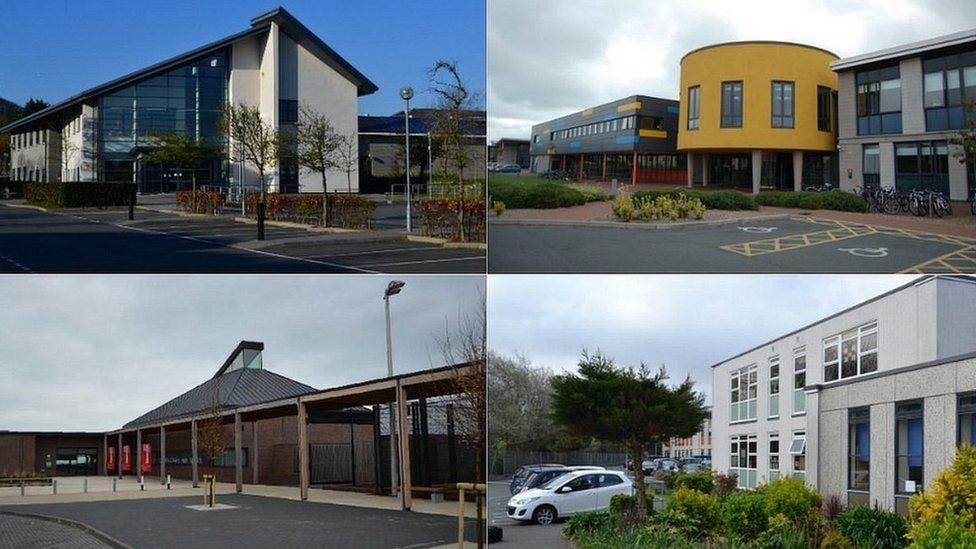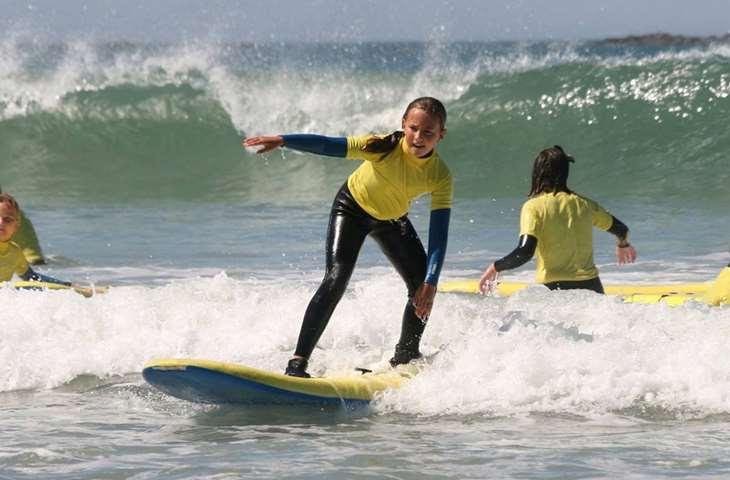Guernsey is the second largest of the Channel Islands lying off the coast of France in the Bay of St. Malo, and is a self-governing British Crown dependency. It's known for beach resorts like Cobo Bay and the scenery of its coastal cliffs. Castle Cornet, a 13th-century harbour fortification in the capital of St. Peter Port, now contains history and military museums. Hauteville House is the lavish former home of French writer, Victor Hugo.
For immigration and nationality purposes it is UK law, and not Guernsey law, which applies
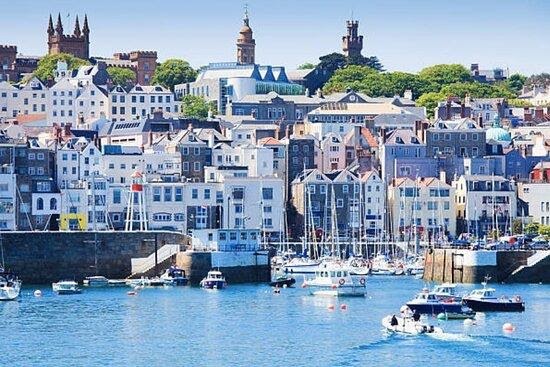
Capital: Saint Peter Port
Dialling code: +44
Area: 65 km²
Population: 62,792 (2019 census)
YouTube Welcome To Guernsey: https://www.youtube.com/watch?v=mqtJ-Q84wi0
Guernsey Information Centre, North Esplanade, St Peter Port, Guernsey GY1 3AN
Guernsey Tourism Board: https://www.visitguernsey.com/
Email: enquiries@visitguernsey.com
Phone Number: 01481 223552
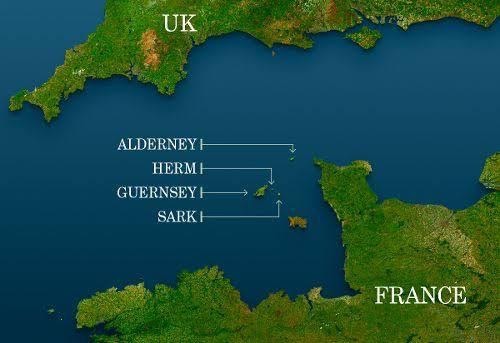
Five reasons to live in Guernsey, Channel Islands
A pocket of international finance and a haven for families
The largest of seven islands in the Bailiwick of Guernsey archipelago in the Channel Islands, heritage-rich Guernsey delivers international financial clout in scenic surroundings.
Island hopping
Residents do not have far to roam: Guernsey is only about 65 sq km large, being some 15km by 10km. However, the island lies just over 100km from the coast of southern England and 40km from Normandy on France’s northern coast, meaning it is well placed for a weekend break, not to mention a day trip to one of its bailiwick neighbours.
Those who make the 50-minute ferry journey from Guernsey eastward to Sark may be rewarded with views of Herm island’s puffins. The nature reserve of Lihou is even closer to home, accessed at low tide by a cobbled causeway on Guernsey’s west coast.
Surf and swim
The island’s small size also means locals are never too far from one of its 27 beaches. Surfers favour the west-coast Vazon Bay, while the sheltered southern bay of Petit Bot attracts swimmers. Families enjoy rock pooling at Moulin Huet, a cove that inspired the French impressionist painter Renoir on a visit there in 1883.
Financial attractions
A British crown dependency, Guernsey is not part of the UK or the EU. It makes its own laws and fiscal policy: personal income is taxed at 20 per cent and no VAT is levied. There is also no capital gains or inheritance tax.
As part of population control measures, there are restrictions on who can join the island’s 62,500 residents: a certificate or permit is required to live and work there. Many of those who do make the move are drawn by Guernsey’s finance sector, centred on the capital Saint Peter Port; the sector accounted for just over a fifth of employment in December 2017. The island lays claim to being the closest global finance centre to London (it is an hour’s flight from London Gatwick airport).
Family friendly
Boasting a low crime rate, a relaxed pace of life and an island-wide speed limit of 35 miles per hour (56kph), the island is viewed as a safe and welcoming place to raise a family. Guernsey offers a choice of state and private schools, and enjoyed an overall pass rate of 99.8 per cent in 2018 for A-levels (equivalent to high school diplomas), compared with 97.6 per cent for England.
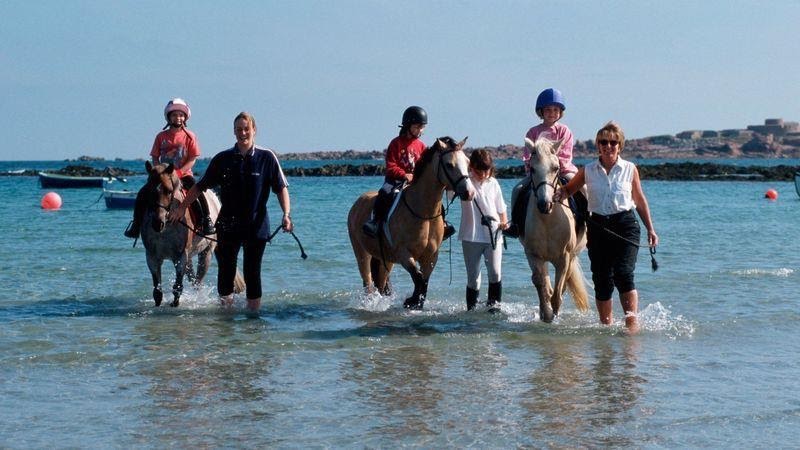
Vazon Bay is a popular spot for surfing and horse-riding
Slices of history
With plenty of heritage sites to explore, Guernsey makes a fascinating home for history buffs. The film adaptation this year of the novel The Guernsey Literary and Potato Peel Pie Society gave an idea of life on the island under occupation by the Germans during the Second World War. The legacy of this period is remembered at sites such as the German Occupation Museum and the German Underground Hospital.
Other places of interest include the 1780-built Clarence Battery, part of Guernsey’s principal fort during the French Revolution, and Hauteville House, the former home of French writer Victor Hugo, who was exiled on the island between 1856 and 1870 during Napoleon III’s rule in France.
In Les Vauxbelets valley, the charming porcelain and pebble-decorated Little Chapel is a smaller version of the grotto and basilica at Lourdes in southern France.
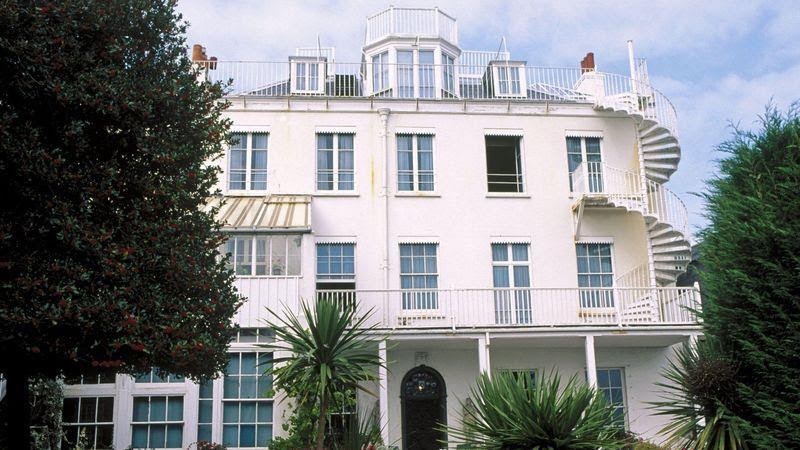
Hauteville House, a 19th-century refuge for French writer Victor Hugo
Economy
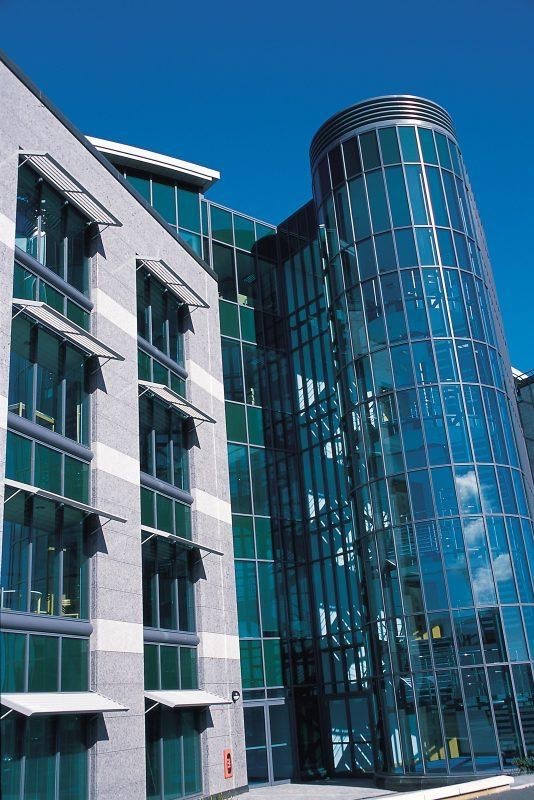
Financial services, such as banking, fund management, and insurance, account for about 37% of GDP. Tourism, manufacturing, and horticulture, mainly tomatoes and cut flowers, especially freesias, have been declining. Light tax and death duties make Guernsey a popular offshore finance centre for private-equity funds.
Guernsey does not have a Central Bank and it issues its own sterling coinage and banknotes. UK coinage and (English, Scottish and Northern Irish-faced) banknotes also circulate freely and interchangeably. Total island investment funds, used to fund pensions and future island costs, amount to £2.7billion as at June 2016. The island issued a 30-year bond in December 2015 for £330m, its first bond in 80 years. The island has been given a credit rating of AA-/A-1+ with a stable outlook from Standard & Poor's.
Guernsey has the official ISO 3166-1 alpha-2 code GG and the official ISO 3166-1 alpha-3 code GGY; market data vendors, such as Reuters, will report products related to Guernsey using the alpha-3 code.
In March 2016 there were over 32,291 people employed in Guernsey with 4,864 being self-employed and 2,453 employing businesses. 19.6% work in the finance industry and median earnings were £31,215.
Transport
Ports and harbours exist at St Peter Port and St Sampson. There is a single paved airport, Guernsey Airport. The States of Guernsey wholly own their own airline, Aurigny. The decision to purchase the airline was made to protect important air links to and from the island and the sale was completed on 15 May 2003.
Alderney is now the only Channel Island with a working railway.
Guernsey has a public bus service, operated by CT Plus on behalf of the States of Guernsey Environment and Infrastructure Department.
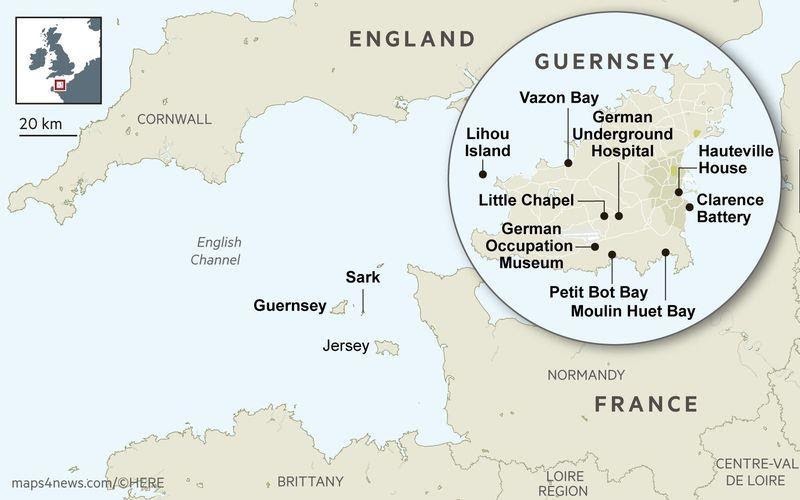
Getting to Guernsey
Hop on a quick flight or catch a ferry
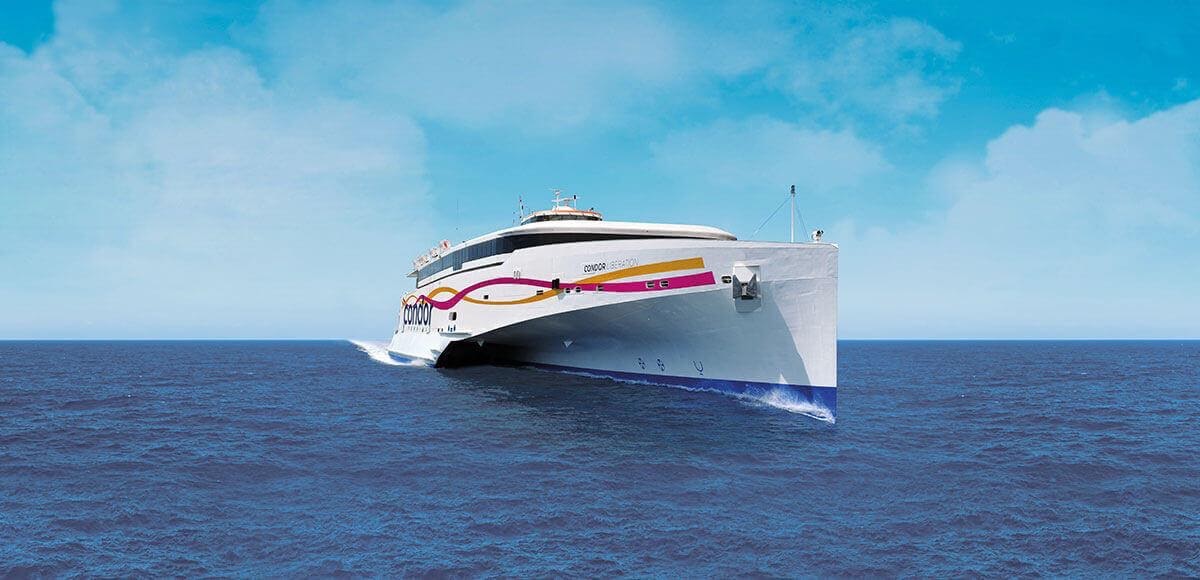
Guernsey Information Centre, North Esplanade, St Peter Port, Guernsey, Channel Islands GY1 3AN
Tel.: 01481 223552
Email: enquiries@visitguernsey.com
Website: https://www.visitguernsey.com/travel/getting-here/
Guernsey Airport: https://www.airport.gg/route-map
Getting to Guernsey by Sea: https://www.visitguernsey.com/travel/getting-here/by-sea/
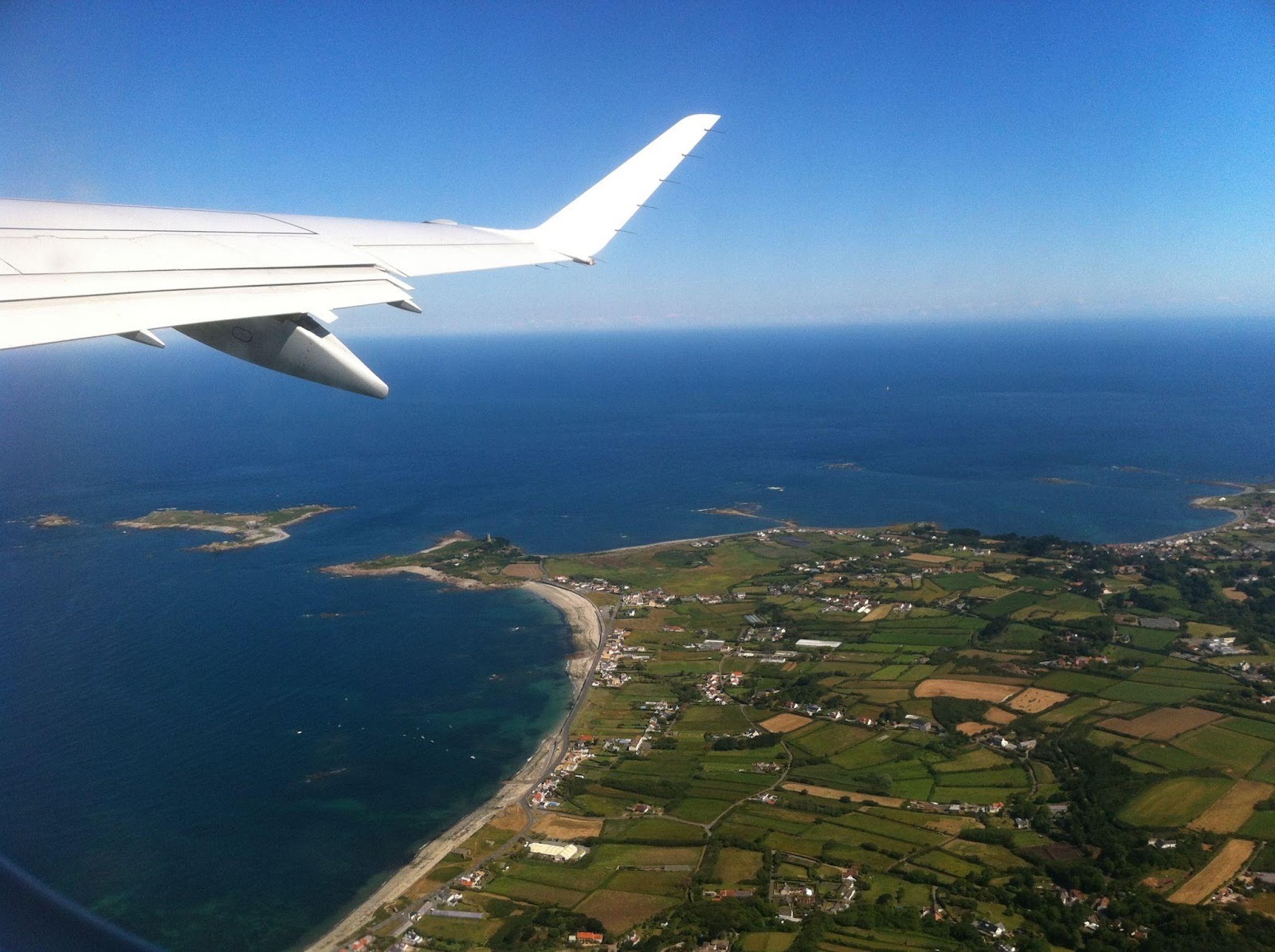
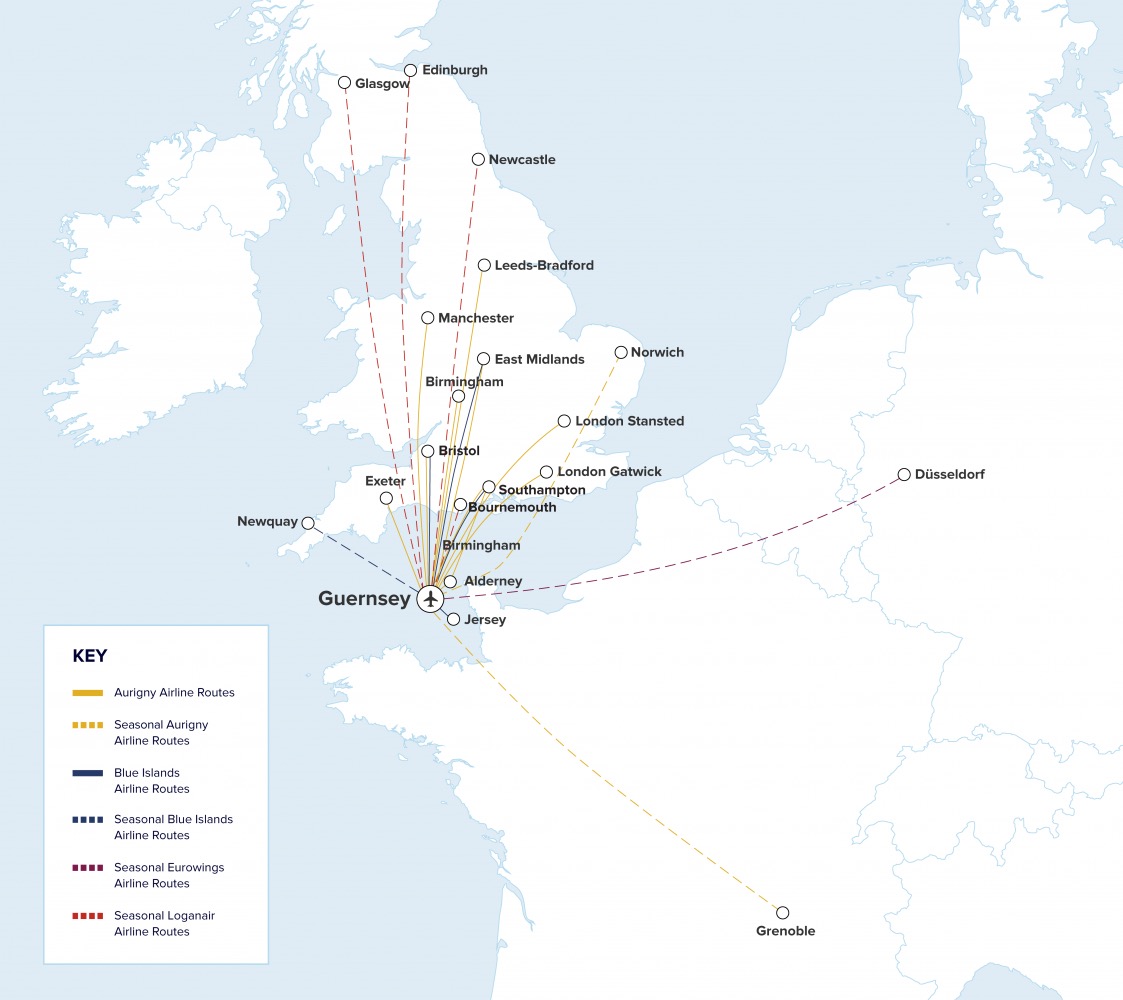
Flights are available from Guernsey to a number of destinations across the UK and Europe
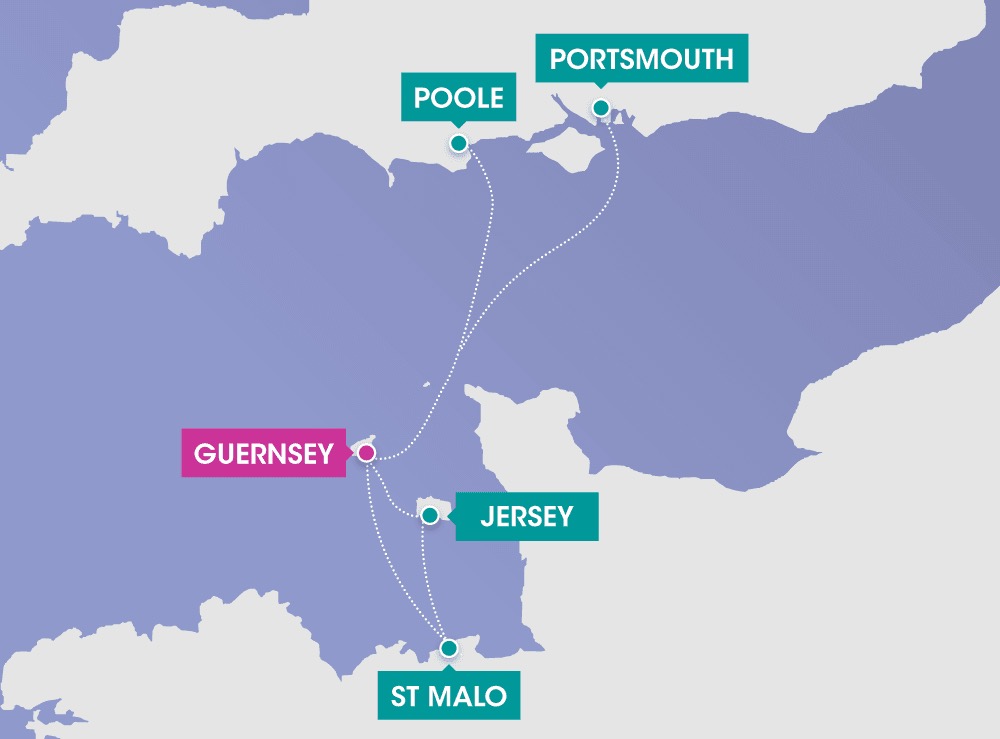
Ferries routes to Guernsey
Business
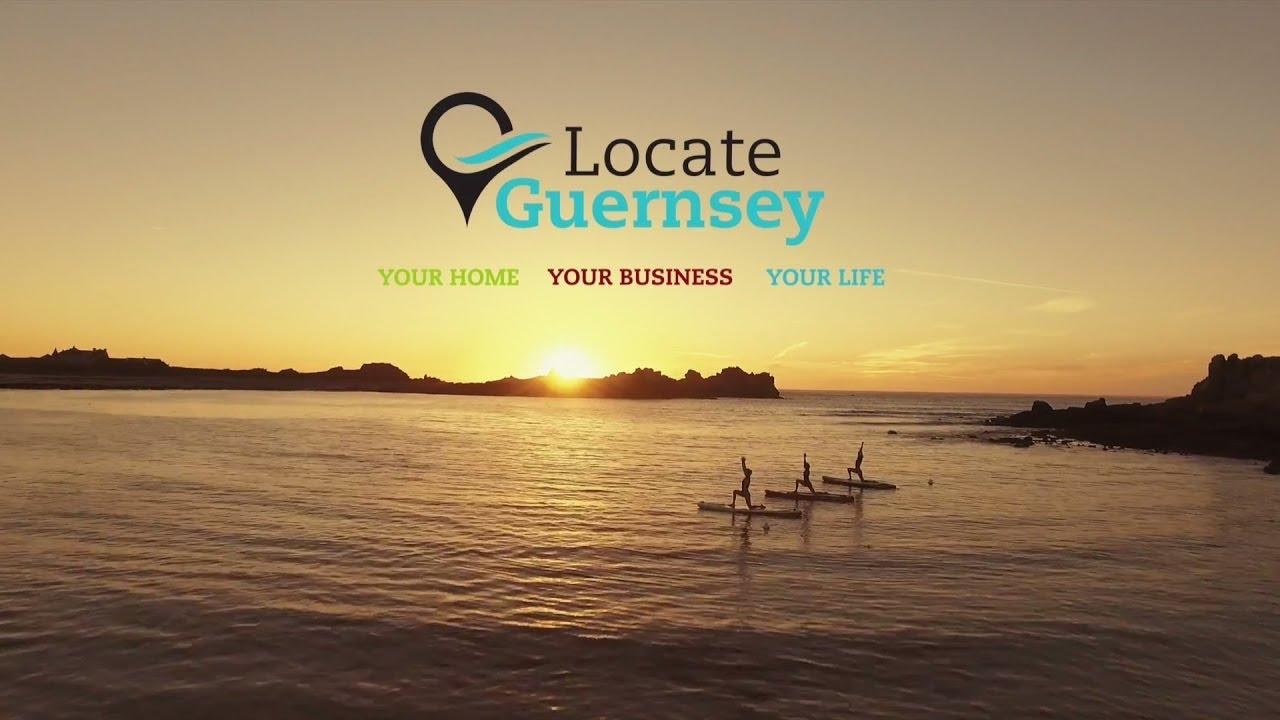
As of 2014, the finance industry forms the largest economic sector in Guernsey, generating around 40% of Guernsey's GDP and directly employing around 21% of its workforce. Banks began setting up operations in the island from the early 1960s onwards in order to avoid high onshore taxes and restrictive regulation. The industry regulator is the Guernsey Financial Services Commission, which was established in 1987. In 2015, the Bailiwick of Guernsey (in conjunction with Jersey) established the Channel Islands Financial Ombudsman (CIFO) to resolve consumer complaints about financial services provided in or from the Channel Islands of Jersey, Guernsey, Alderney and Sark [see www.ci-fo.org for details and legislative basis].
Prior to the growth of the finance industry, the island's main industries were quarrying and horticulture. The latter particularly decline as a result of the oil price shocks of the 1970s and the introduction of cheap North Sea gas that benefited Dutch growers. Guernsey is home to Specsavers Optical Group and Healthspan also has its headquarters in Guernsey.
Tourism
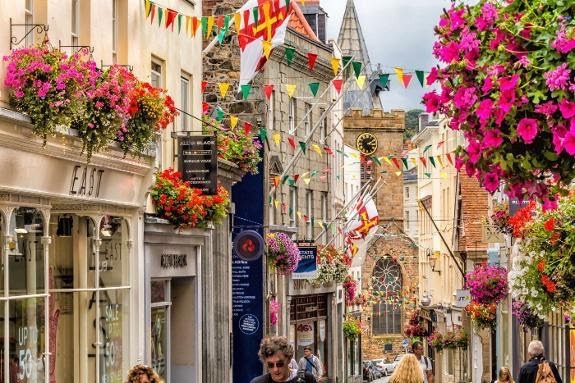
Guernsey has been a tourist destination since at least the Victorian days, with the first tourist guide published in 1834. In the 19th century, two rail companies (London and South Western Railway and Great Western Railway) ran competing boats from the UK to St Peter Port, with a race to the only convenient berth. This was halted with the sinking of the SS Stella in 1899.
Guernsey enters Britain in Bloom with St Martin Parish winning the small town category twice in 2006 and 2011, Saint Peter Port winning the large coastal category in 2014 and St Peter's winning the small coastal prize in 2015. Herm has won Britain in Bloom categories several times: in 2002, 2008, and 2012, Herm won the Britain in Bloom Gold Award.
The military history of the island has left a number of fortifications, including Castle Cornet, Fort Grey. Guernsey loophole towers and a large collection of German fortifications with a number of museums.
The use of the roadstead in front of St Peter Port by over 100 cruise ships a year is bringing over 100,000 day-trip passengers to the island each year.
Taxation
Guernsey, Alderney and Sark each raise their own taxation, although in 1949 Alderney (but not Sark) transferred its fiscal rights to Guernsey.
Personal tax liability differs according to whether an individual is resident in the island or not. Individuals resident in the Jurisdiction of Guernsey (which does not include Sark) pay income tax at the rate of 20% on their worldwide income, whereas non-residents are only liable on income arising from activity or ownership within Guernsey. Unlike in the UK, the income tax year in Guernsey aligns to the calendar year. All Guernsey-resident individuals are subject to an upper limit on their tax liability, which is known as the "tax cap". Individuals may elect either of the following; Tax on non-Guernsey-source income restricted to £110,000, plus tax on Guernsey-source income (excluding Guernsey bank interest), or Taxed on worldwide income restricted to £220,000, including Guernsey-source income. Income derived from Guernsey land and property is excluded from the tax cap, as from 1 January 2015, and is subject to tax at the normal rate of 20%. Only one cap applies per married couple. As from 1 Jan 2019, these tax caps have increased to £130,000 and £260,000 respectively. Guernsey has also introduced a new lower £50k tax cap for new residents for three years, subject to buying an Open Market Part A house with a document duty in excess of that amount, and not having lived in Guernsey or Alderney for three years prior.
Since 2008, Guernsey has operated three levels of corporation tax, depending on the source of the income.
A 0% corporation tax rate on most companies.
A 10% rate (income from banking business and, with effect from 1 January 2013, extended to domestic insurance business, fiduciary business, insurance intermediary business and insurance manager business).
A 20% rate (income from trading activities regulated by the Office of the Director General of Utility Regulation, and income from the ownership of lands and buildings).
Guernsey levies no capital gains, inheritance, capital transfer, value added (VAT / TVA) or general withholding taxes. In the 2011 Budget, the UK announced that it would be ending Low Value Consignment Relief that was being used to sell goods VAT free to customers across the UK, with this legislation coming into force on 1 April 2012. Tax revenues represent 22.4% of GDP.
Social Security contributions, a form of taxation, are payable by most residents, employees paying 6.6%, self-employed 11% and non-employed 10.4%, all subject to upper and lower limits.
The official website for the States of Guernsey
Income Tax: https://www.gov.gg/tax
Society
Demographics
The population is 63,026 (July 2016 est.) The median age for males is 40 years and for females is 42 years. The population growth rate is 0.775% with 9.62 births/1,000 population, 8 deaths/1,000 population, and annual net migration of 6.07/1,000 population. The life expectancy is 80.1 years for males and 84.5 years for females. The Bailiwick ranked 10th in the world in 2015 with an average life expectancy of 82.47 years.
Border control
The whole jurisdiction of Guernsey is part of the Common Travel Area.
For immigration and nationality purposes it is UK law, and not Guernsey law, which applies (technically the Immigration Act 1971, extended to Guernsey by Order in Council). Guernsey may not apply different immigration controls from the UK.
Housing restrictions
Guernsey undertakes a population management mechanism using restrictions over who may work in the island through control of which properties people may live in. The housing market is split between local market properties and a set number of open market properties. Anyone may live in an open market property, but local market properties can only be lived in by those who qualify – either through being born in Guernsey (to at least one local parent), by obtaining a housing licence, or by virtue of sharing a property with someone who does qualify (living en famille). Consequently, open market properties are much more expensive both to buy and to rent. Housing licences are for fixed periods, often only valid for 4 years and only as long as the individual remains employed by a specified Guernsey employer. The licence will specify the type of accommodation and be specific to the address the person lives in, and is often subject to a police record check. These restrictions apply equally regardless of whether the property is owned or rented, and only apply to occupation of the property. Thus a person whose housing licence expires may continue to own a Guernsey property, but will no longer be able to live in it. There are no restrictions on who may own a property.
Coast of Guernsey
There are a number of routes to qualifying as a "local" for housing purposes. Generally, it is sufficient to be born to at least one Guernsey parent and to live in the island for ten years in a twenty-year period. In a similar way a partner (married or otherwise) of a local can acquire local status. Multiple problems arise following early separation of couples, especially if they have young children or if a local partner dies, in these situations personal circumstances and compassion can add weight to requests for local status. Once "local" status has been achieved it remains in place for life. Even a lengthy period of residence outside Guernsey does not invalidate "local" housing status.
Although Guernsey's inhabitants are full British citizens, prior to the UK's withdrawal from the EU, an endorsement restricted the right of establishment in other European Union states was placed in the passport of British citizens connected solely with the Channel Islands and Isle of Man. If it was classified with "Islander Status", the British passport was be endorsed as follows: 'The holder is not entitled to benefit from EU provisions relating to employment or establishment'. Those who had a parent or grandparent born in the United Kingdom itself (England, Scotland, Wales and Northern Ireland), or had lived in the United Kingdom for 5 years, were not subject to this restriction.
Education
Teaching in Guernsey is based on the English National Curriculum. There are 10 primary schools, plus two junior schools and three infant schools. As of 2017, the island still has the 11-plus exam and pupils then transfer to one of four 11–16 secondary schools, or a co-educational grammar school. There are also three fee-paying colleges with lower schools, for which pupils over 11 receive grant support from the States of Guernsey. In 2016, the States of Guernsey voted to end the use of the 11-plus exams from 2019 onwards. It is also responsible for education on the neighbouring islands.
The Education Department is part way through a programme of re-building its secondary schools. The Department has completed the building of Le Rondin special needs school, the Sixth Form Centre at the Grammar School and the first phase of the new College of Further Education – a performing arts centre. The construction of St Sampsons High was completed summer 2008 and admitted its first pupils in September 2008.
In 2008, the school leaving age was raised so the earliest date is the last Friday in June in the year a pupil turns 16, in line with England, Wales and Northern Ireland. This means pupils will be between 15 and 10 months and 16 and 10 months before being able to leave. Prior to this, pupils could leave school at the end of the term in which they turned 14, if they so wished: a letter was required to be sent to the Education department to confirm this. However, this option was undertaken by relatively few pupils, the majority choosing to complete their GCSEs and then either begin employment or continue their education.
Post-GCSE pupils have a choice of transferring to the state-run Grammar School & Sixth Form Centre, or to the independent colleges for academic AS/A Levels/International Baccalaureate Diploma Programme. They also have the option to study vocational subjects at the island's Guernsey College of Further Education.
There are no universities in the island. Students who attend university in the United Kingdom receive state support towards both maintenance and tuition fees. In 2007, the Education Department received the approval of the States Assembly to introduce student contributions to the costs of higher education, in the form of student loans, as apply in the UK. However, immediately after the general election of 2008, the States Assembly voted in favour of a Requête which proposed abolishing the student loans scheme on the grounds that it was expensive to run and would potentially discourage students from going to, and then returning to the island from, university. In 2012, the Education Department reported to the States Assembly that it had no need to re-examine the basis of higher education funding at the present time.
Sport
Guernsey participates in the biennial Island Games, which it hosted in 1987 and 2003 at Footes Lane. Guernsey has also participated as a country in its own right in Commonwealth Games since 1970. Its first medals came in 1982 with its first gold in 1990.
In those sporting events where Guernsey does not have international representation, but the British Home Nations are competing separately, highly skilled islanders may choose to compete for any of the Home Nations. There are, however, restrictions on subsequent transfers to represent other Home Nations. The football player Matt Le Tissier, for example, could have played for the Scottish or Welsh football teams, but opted to play for England instead.
Football in Guernsey is run by the Guernsey Football Association. The top tier of Guernsey football is the FNB Priaulx League where there are nine teams (Alderney, Belgrave Wanderers, Manzur, Northerners, Sylvans, St Martin's, Rovers, Rangers and Vale Recreation). The second tier is the Jackson League. In the 2011–12 season, Guernsey F.C. was formed and entered the Combined Counties League Division 1, becoming the first Channel Island club ever to compete in the English leagues. Guernsey became division champions comfortably on 24 March 2012, they won the Combined Counties Premier Challenge Cup on 4 May 2012. Their second season saw them promoted again on the final day in front of 1,754 'Green Lions' fans, this time to Division One South of the Isthmian League, despite their fixtures being heavily affected not only by poor winter weather, but by their notable progression to the semi-finals of the FA Vase cup competition. They play in level 8 of the English football pyramid. The Corbet Football Field, donated by Jurat Wilfred Corbet OBE in 1932, has fostered the sport greatly over the years. Recently, the island upgraded to a larger, better-quality stadium, in Footes Lane.
Guernsey has the second oldest tennis club in the world, at Kings (founded in 1857), with courts built in 1875. The island has produced a world class tennis player in Heather Watson as well as professional squash players in Martine Le Moignan, Lisa Opie and Chris Simpson.
Guernsey was declared an affiliate member by the International Cricket Council (ICC) in 2005 and an associate member in 2008. The Guernsey cricket team plays in the World Cricket League and European Cricket Championship as well as the Sussex Cricket League.
Various forms of motorsport take place on the island, including races on the sands on Vazon beach as well as a quarter-mile "sprint" along the Vazon coast road. Le Val des Terres, a steeply winding road rising south from St Peter Port to Fort George, is often the focus of both local and international hill-climb races. In addition, the 2005, 2006 and 2007 World Touring Car Champion Andy Priaulx is a Guernseyman.
The racecourse on L'Ancresse Common was re-established in 2004 after a gap of 13 years, with the first new race occurring on 2 May 2005. Races are held on most May day bank holidays, with competitors from Guernsey as well as Jersey, France and the UK participating. Sea angling around Guernsey and the other islands in the Bailiwick from shore or boat is a popular pastime for both locals and visitors with the Bailiwick boasting multiple UK records.
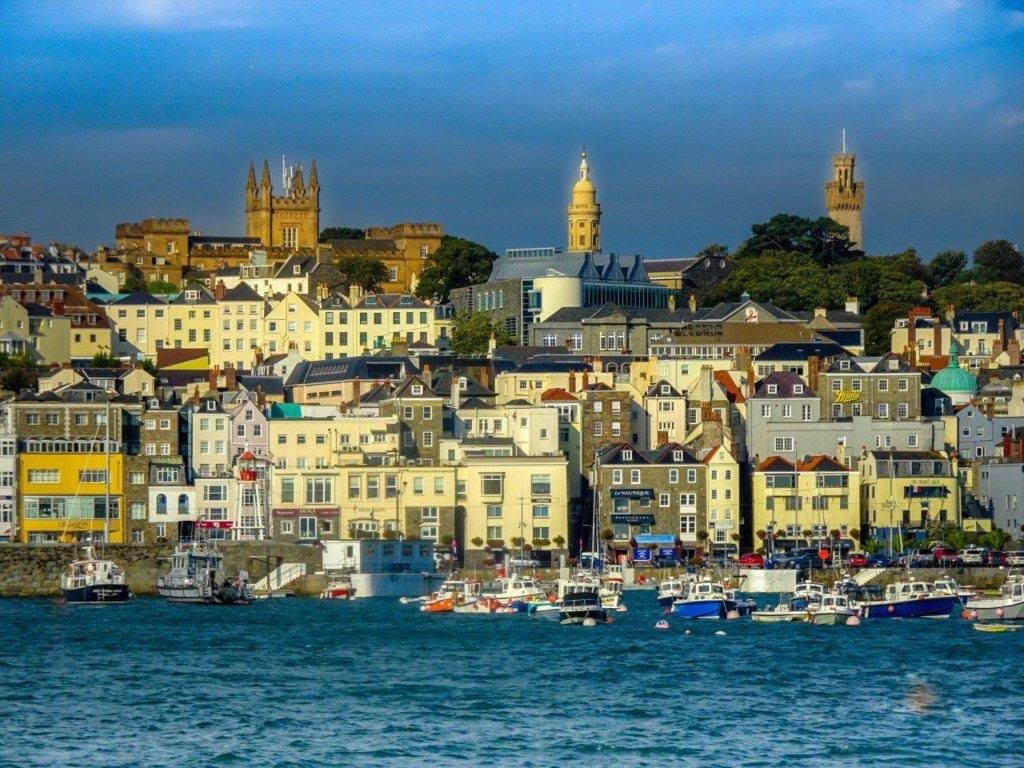
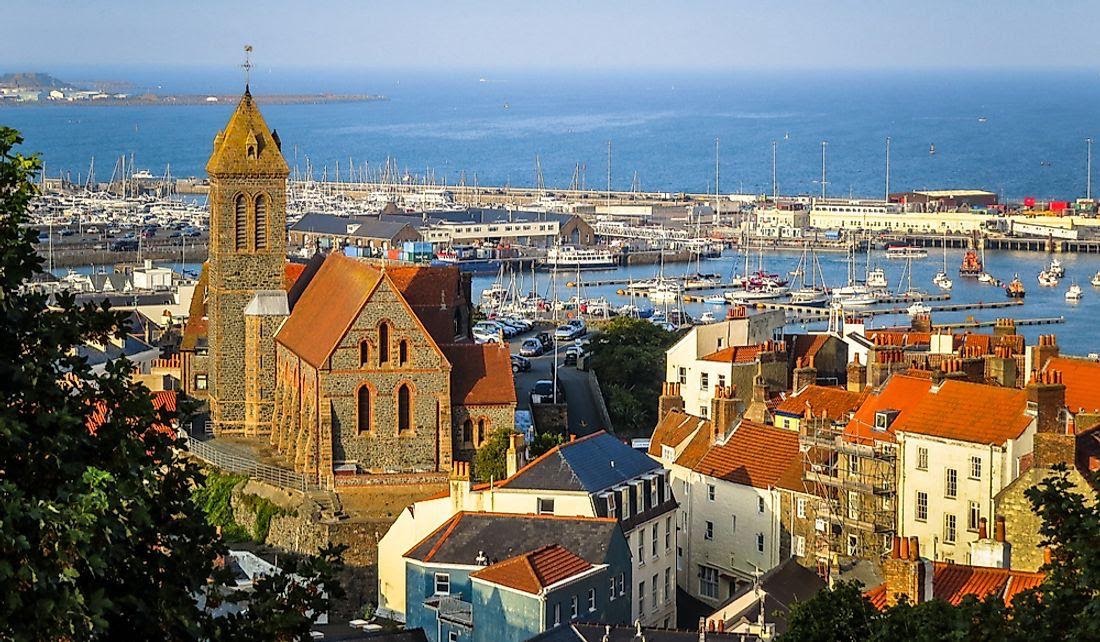
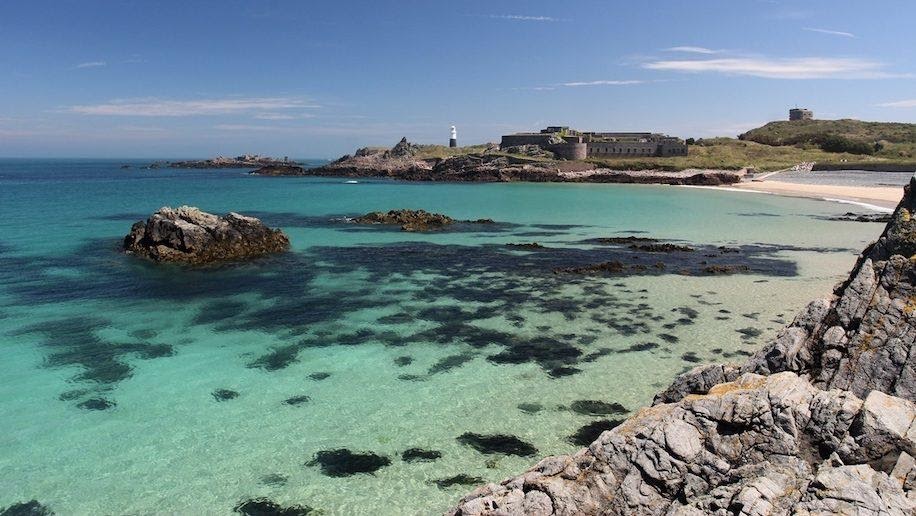
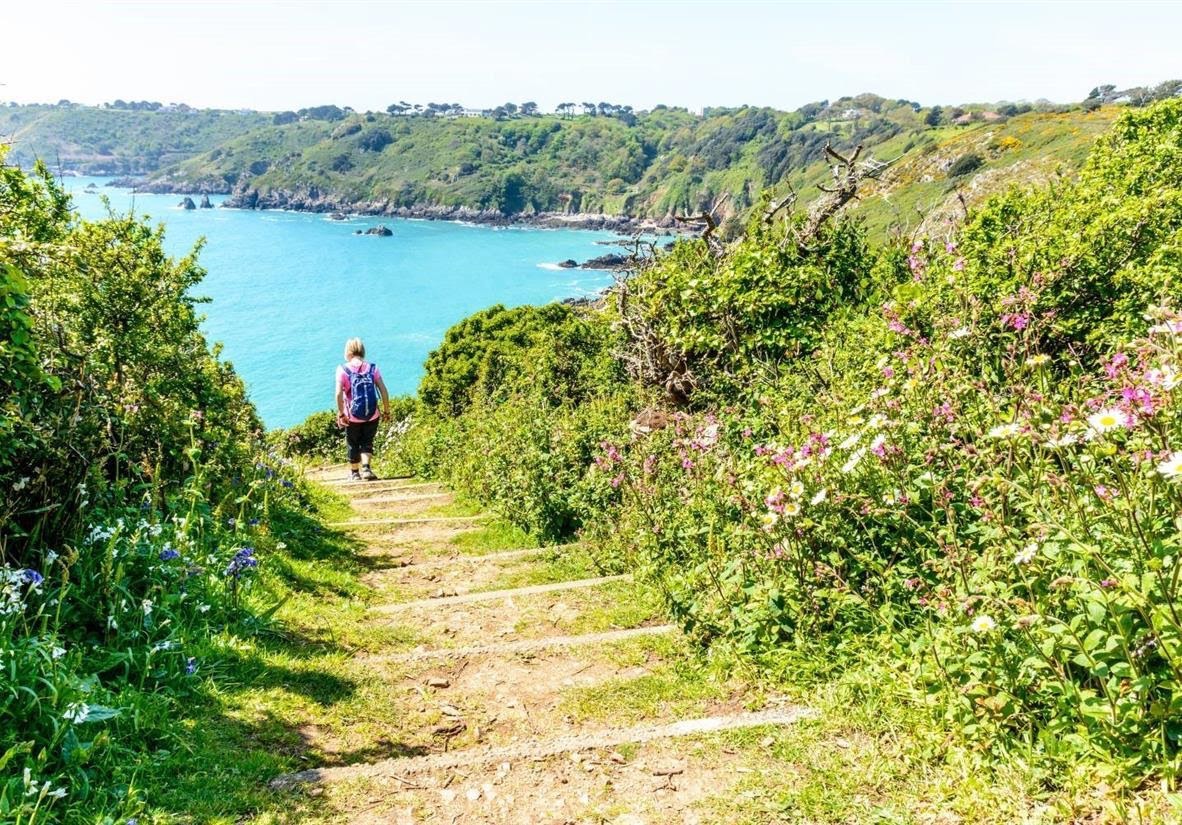
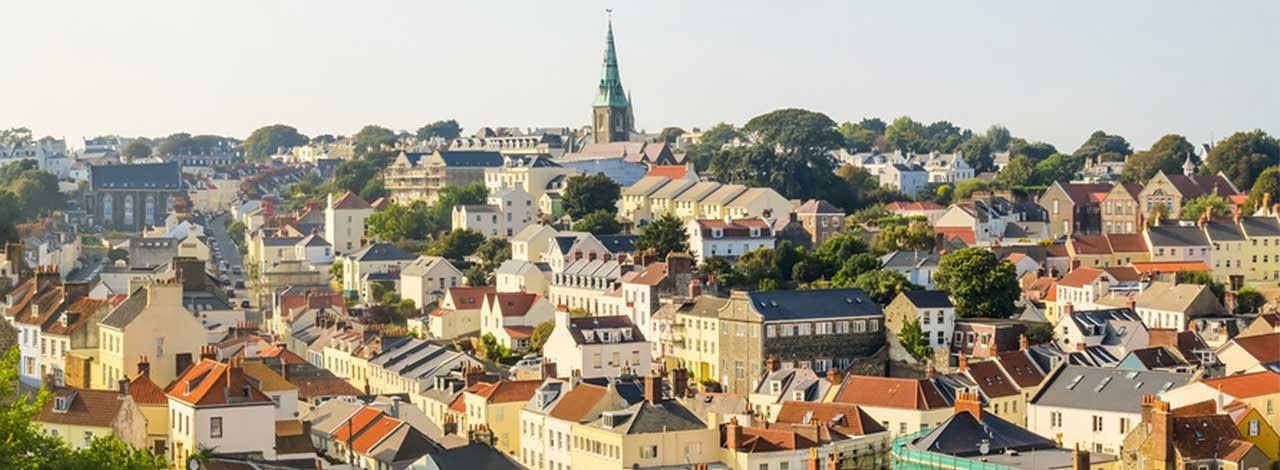
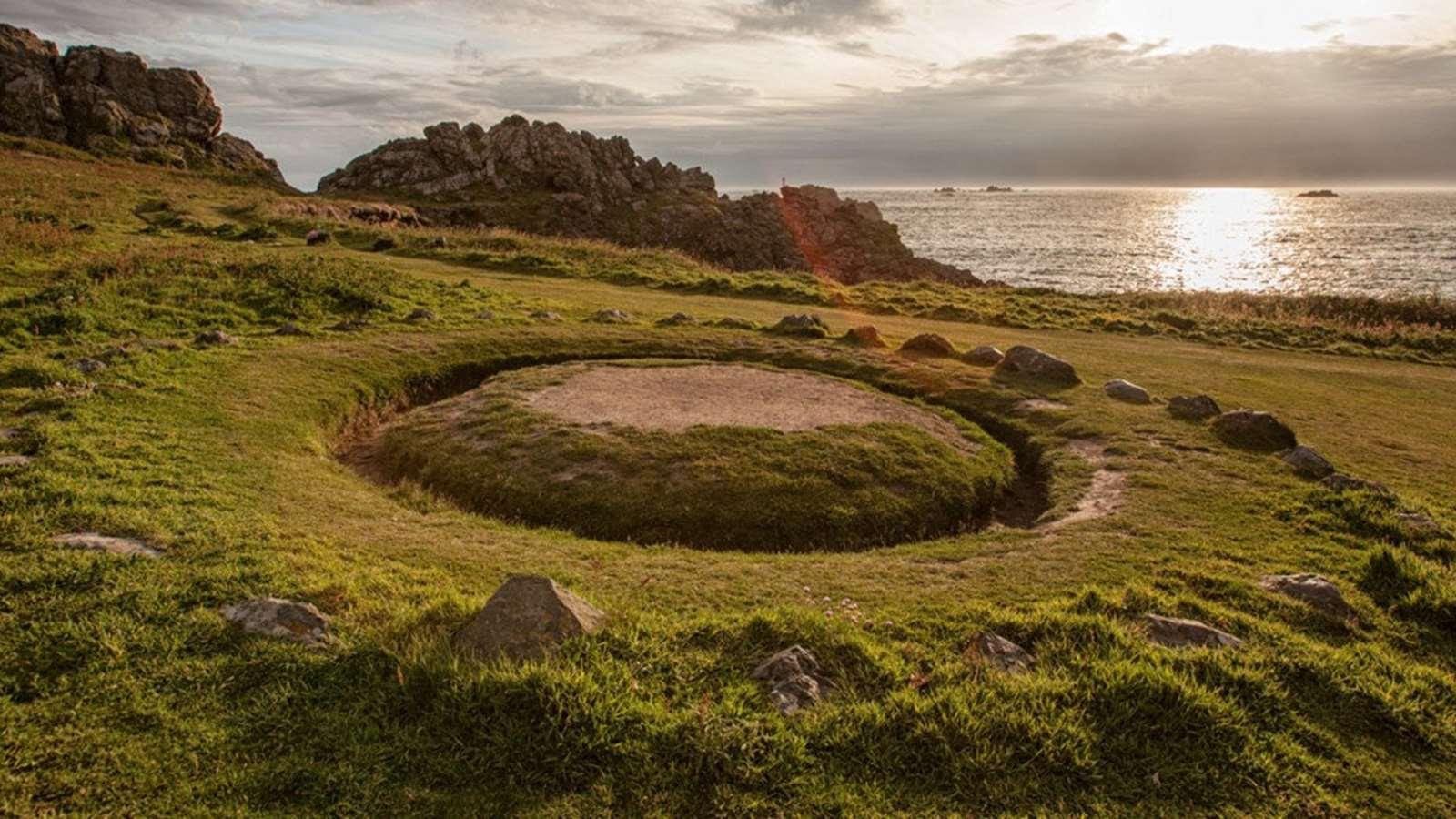
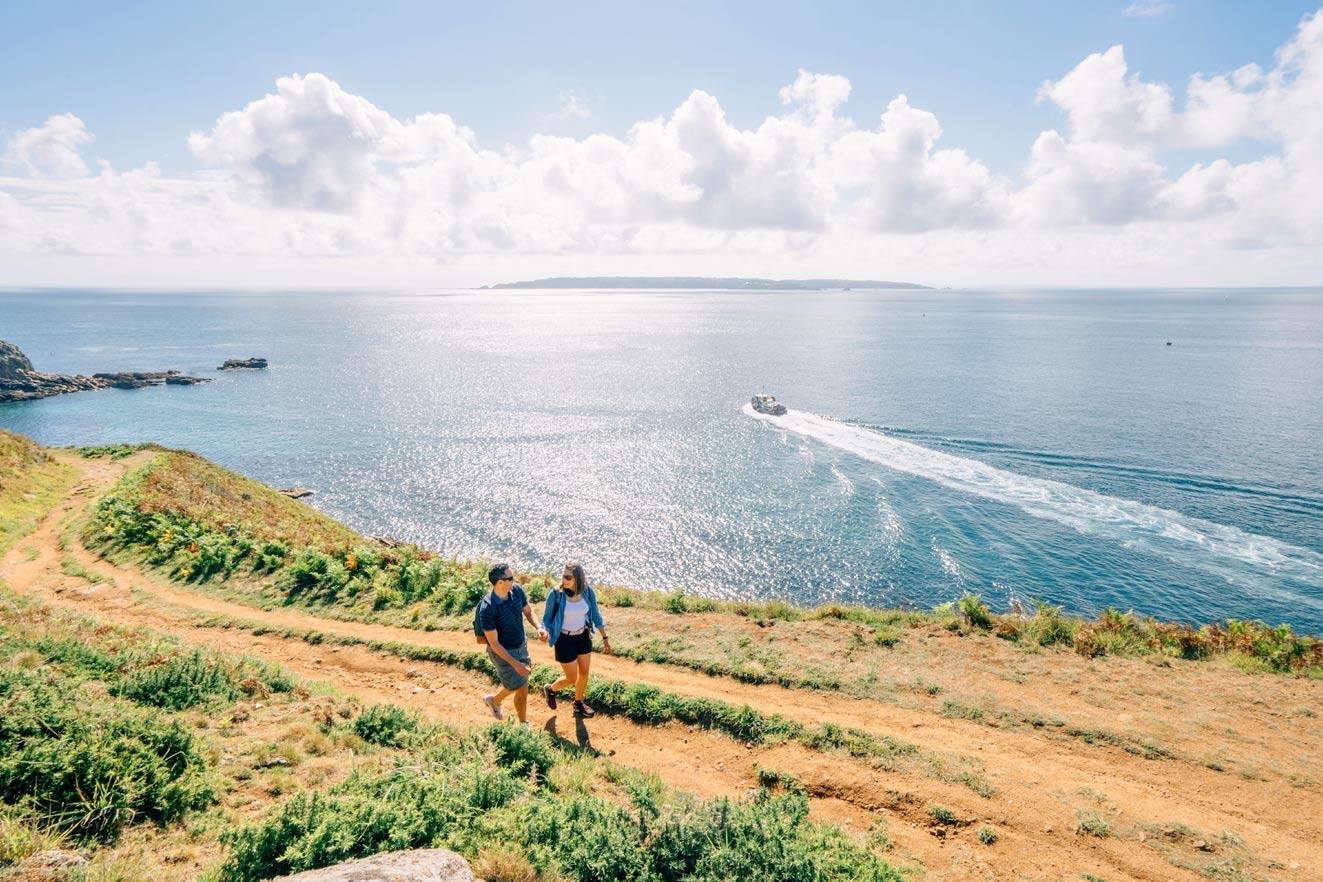
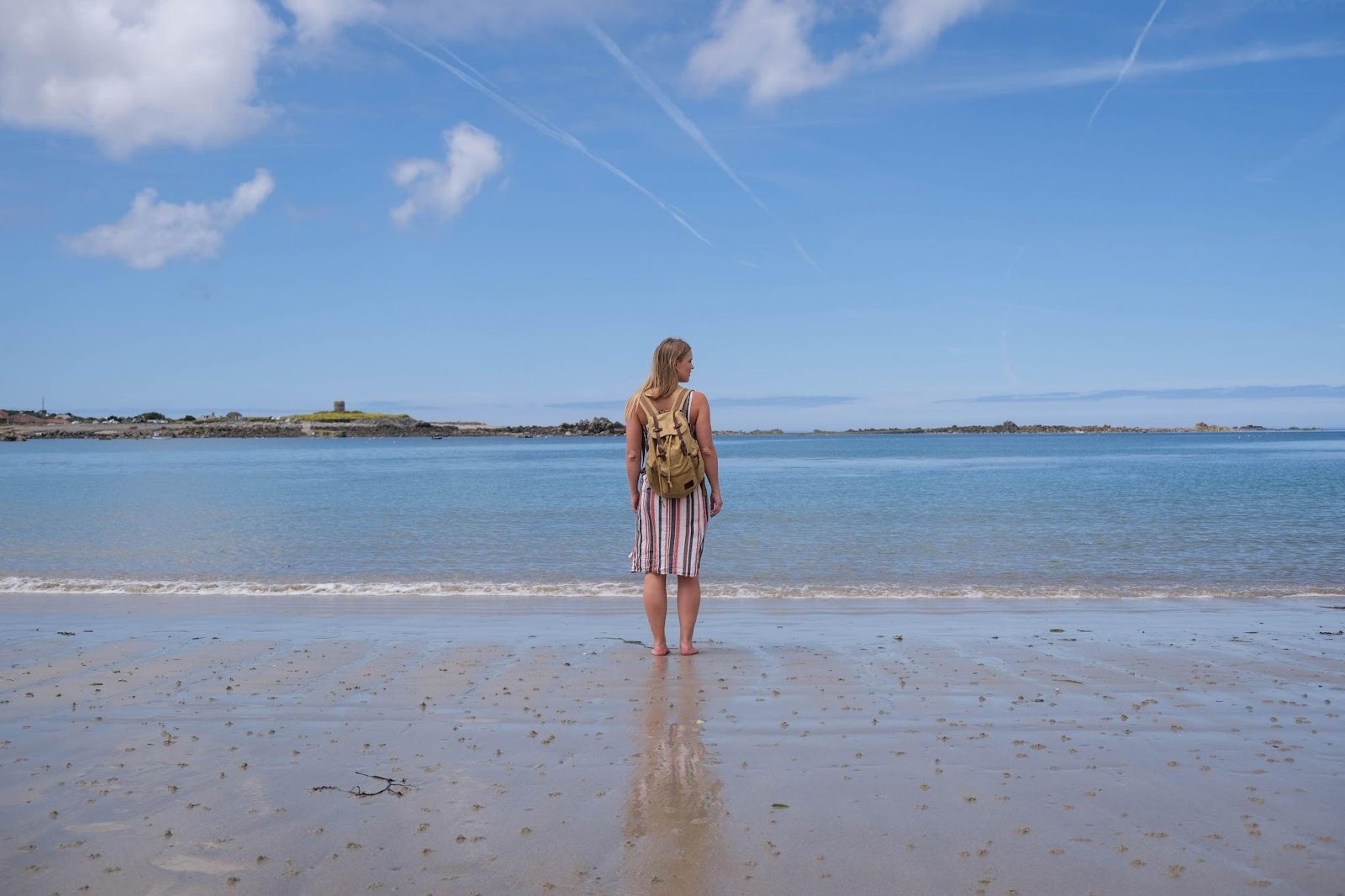
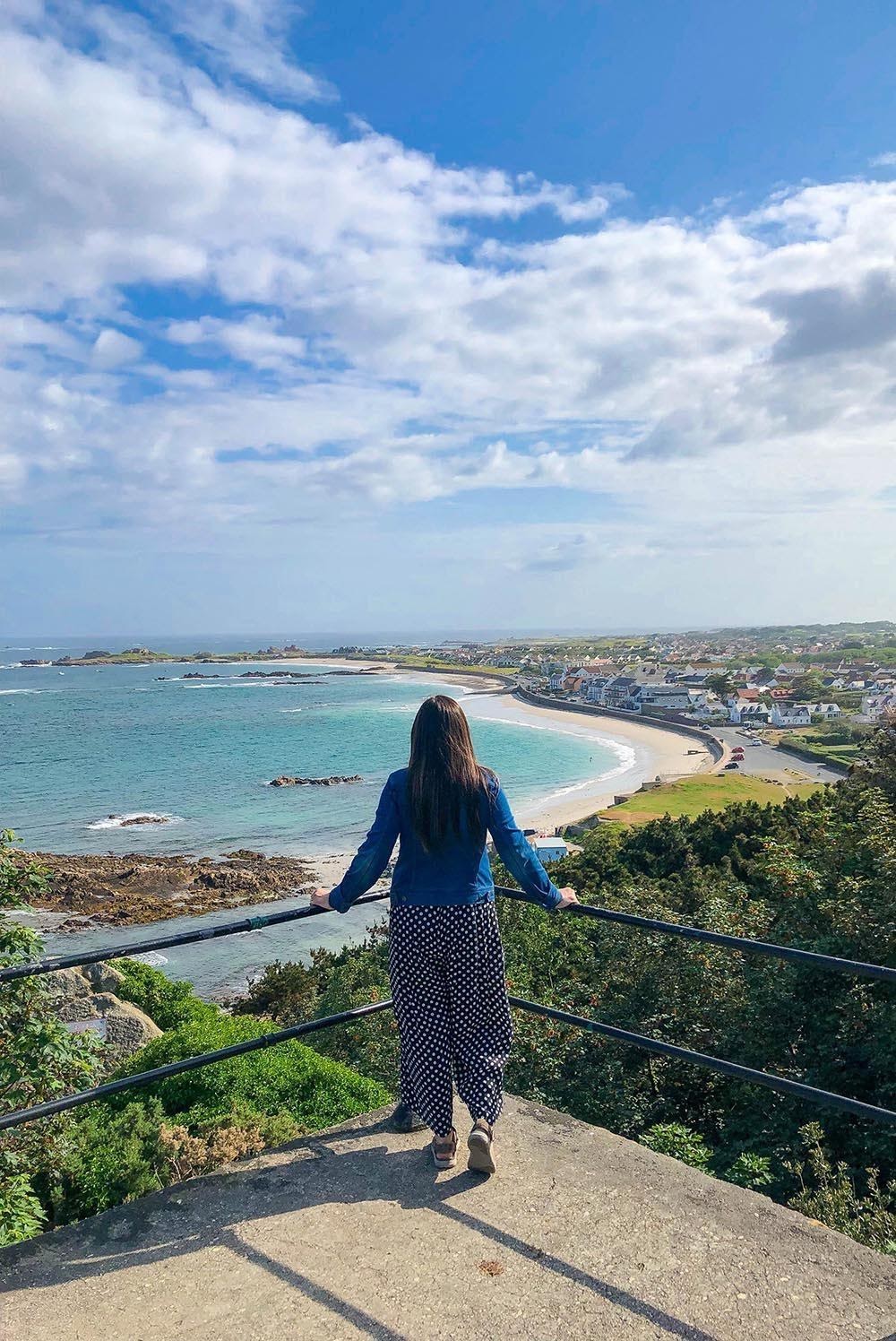
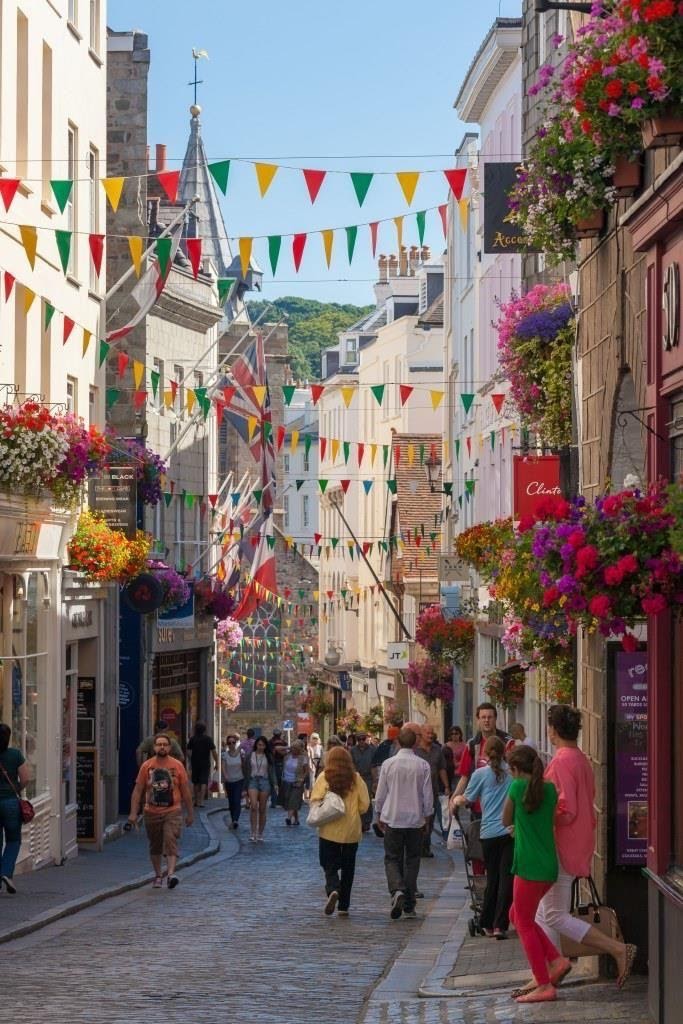
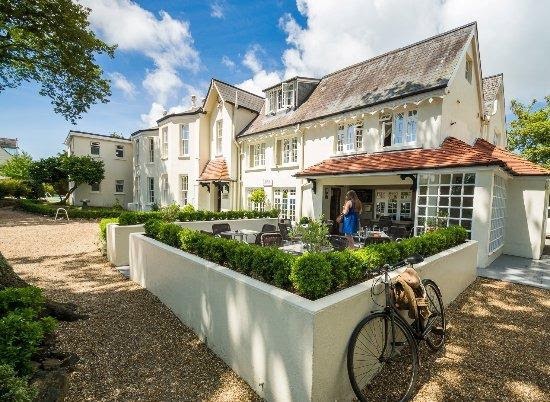
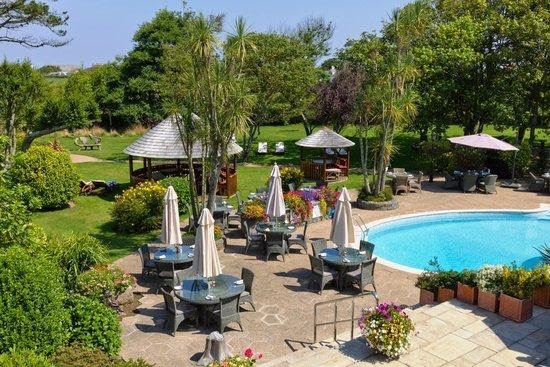
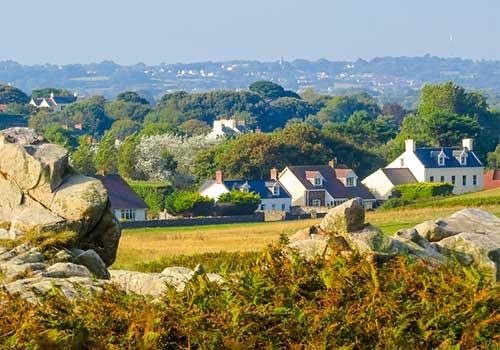
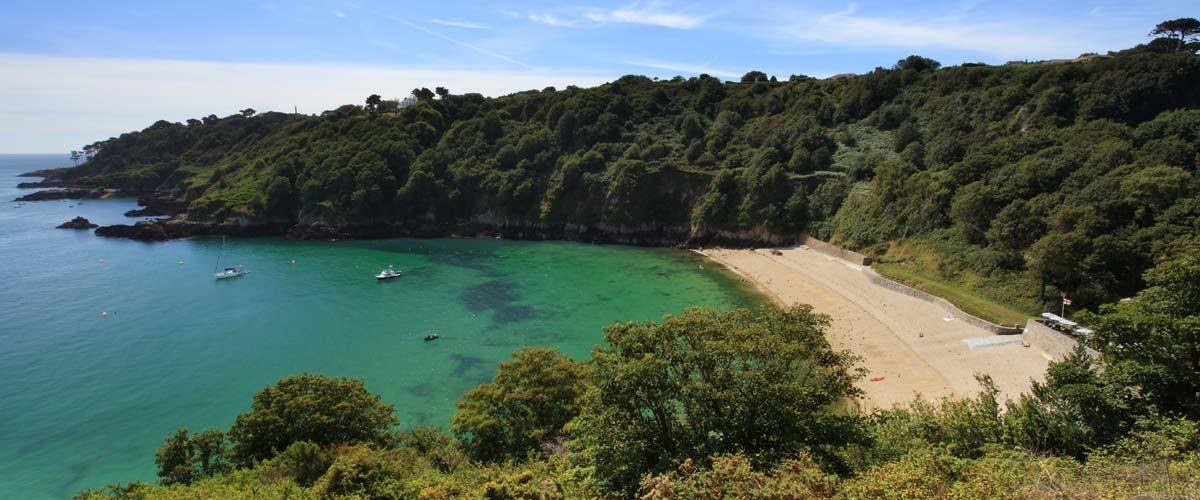
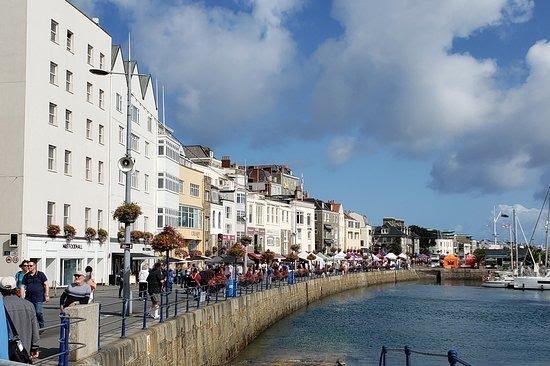
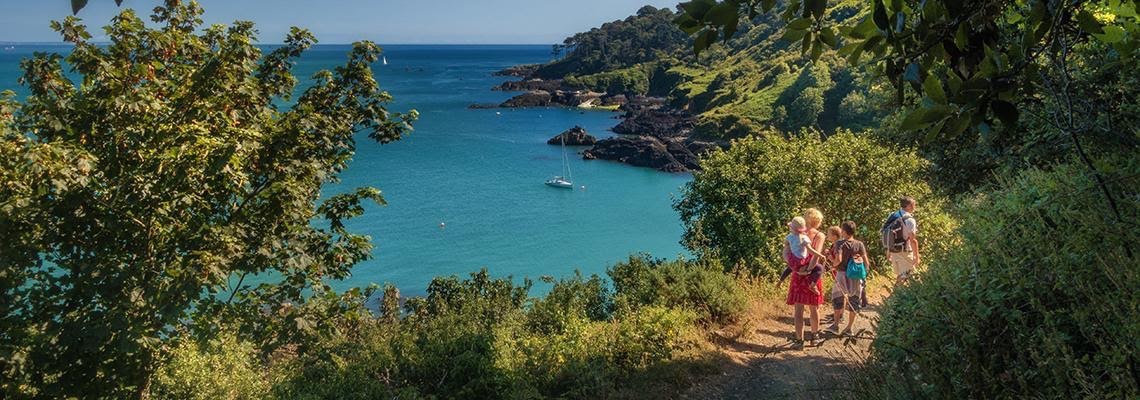
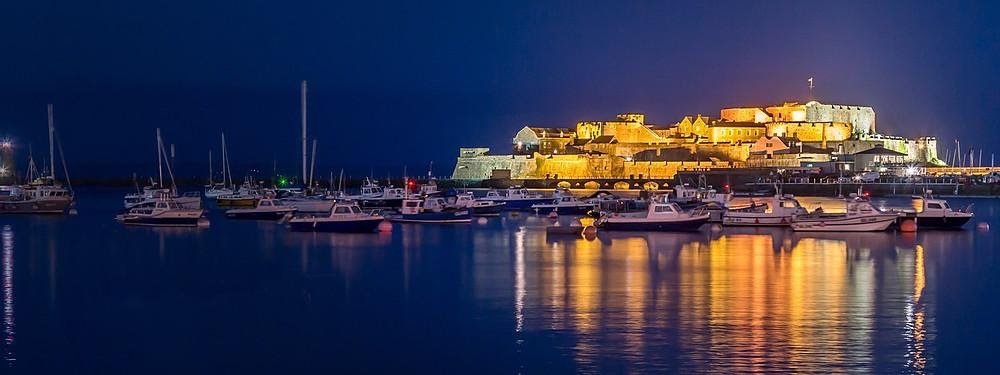
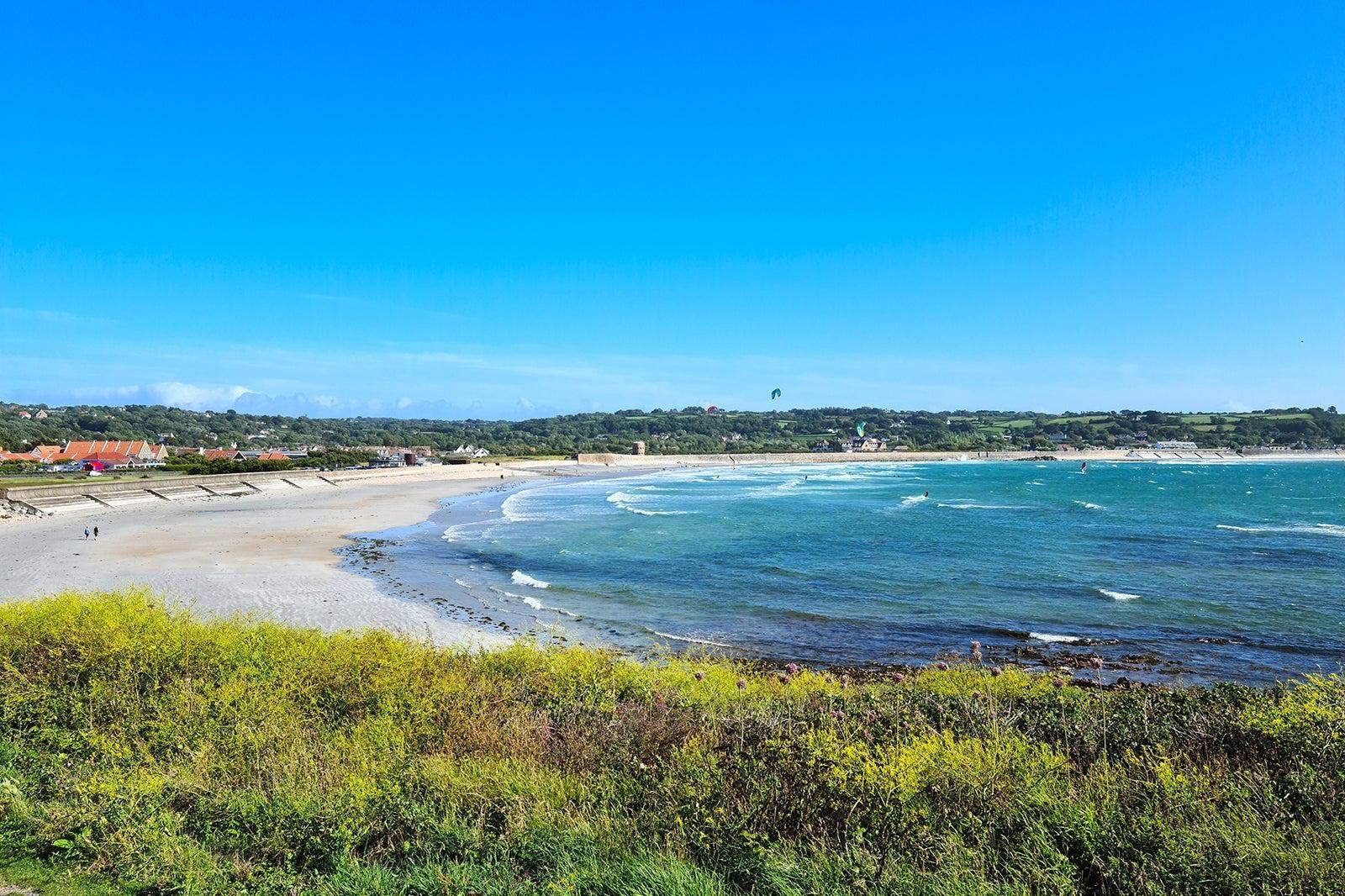
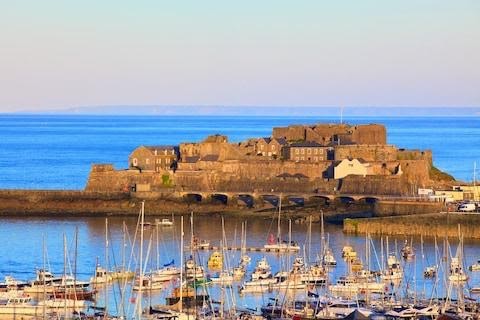
Castle Cornet
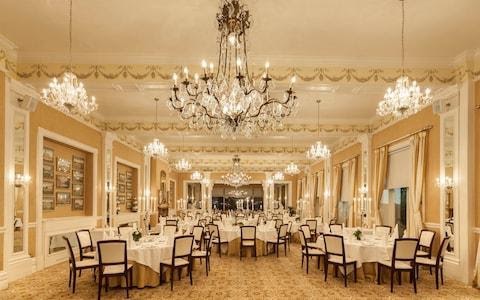
The Old Government House Hotel
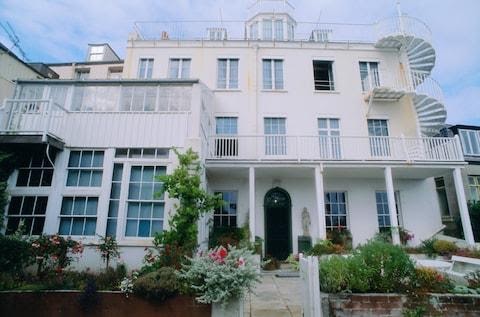
Hauteville House
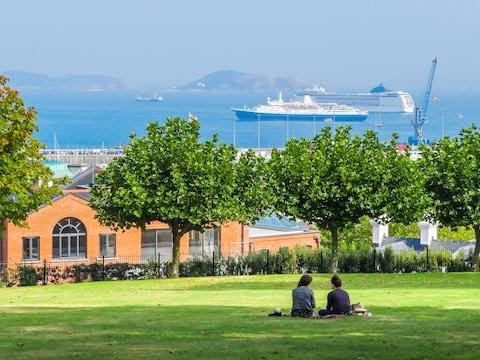
Candie Gardens
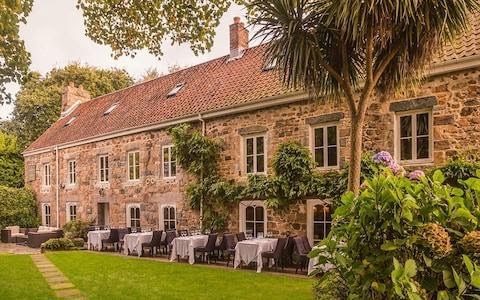
Bella Luce
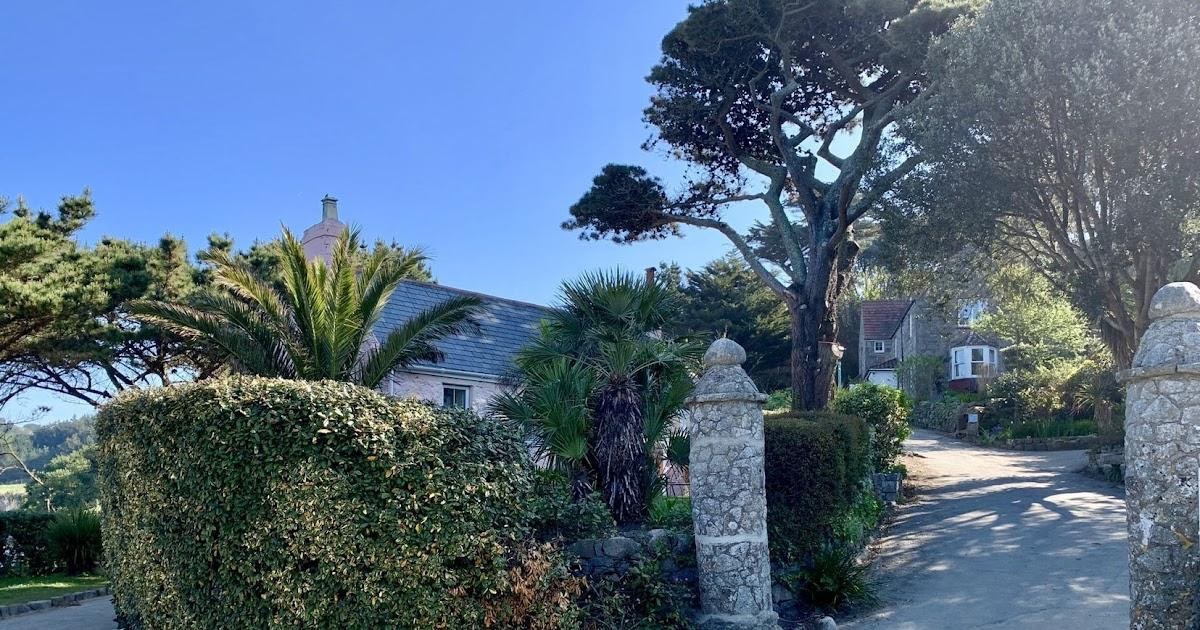
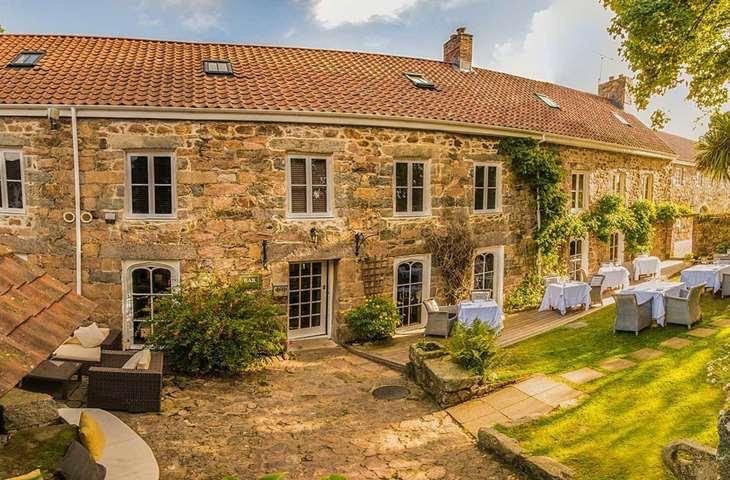
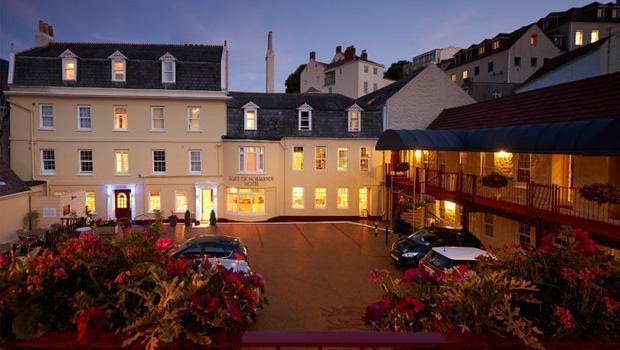
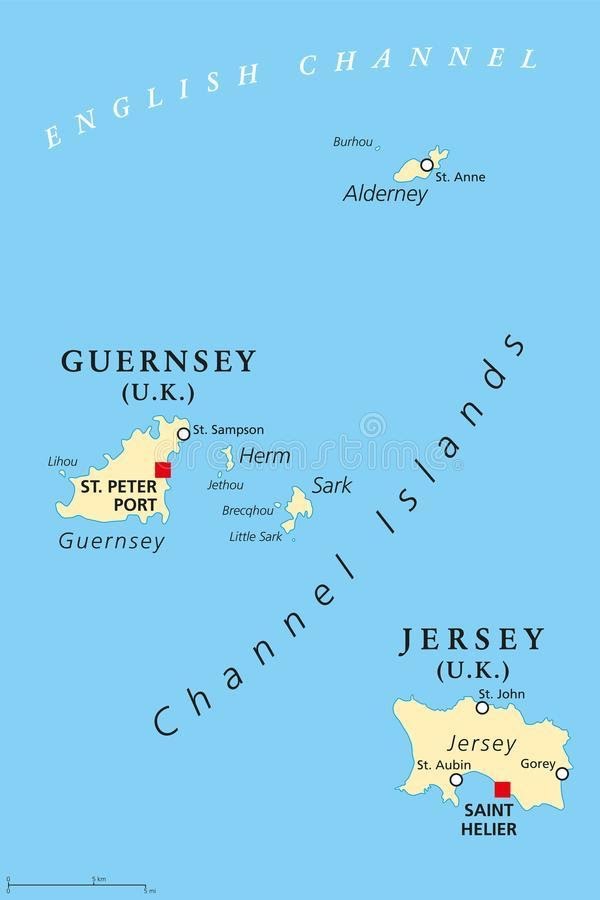
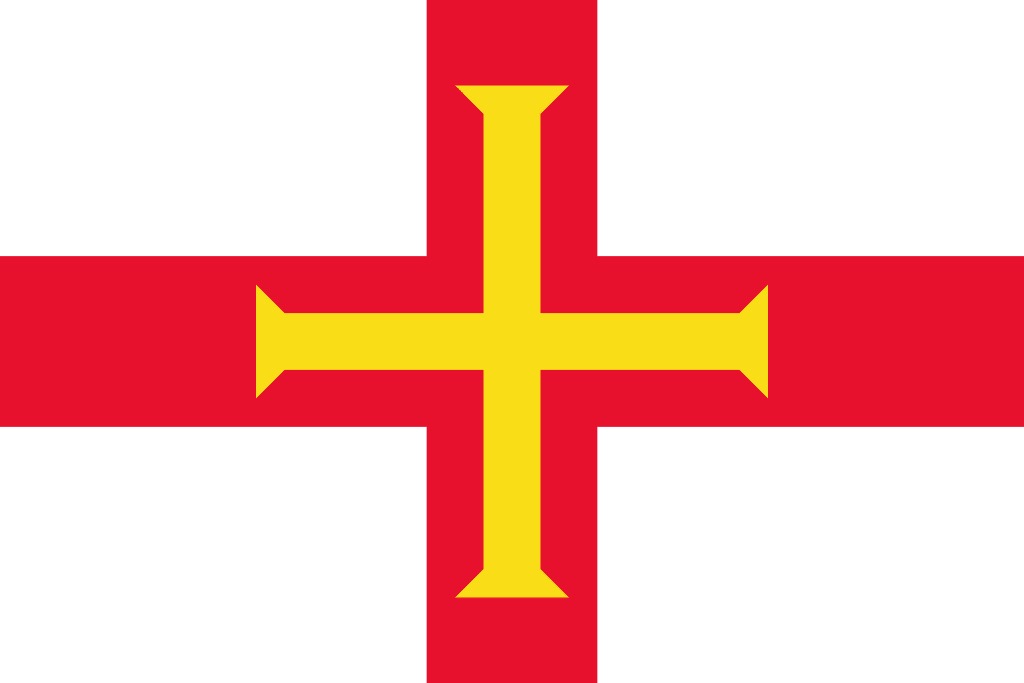
Flag of Guernsey
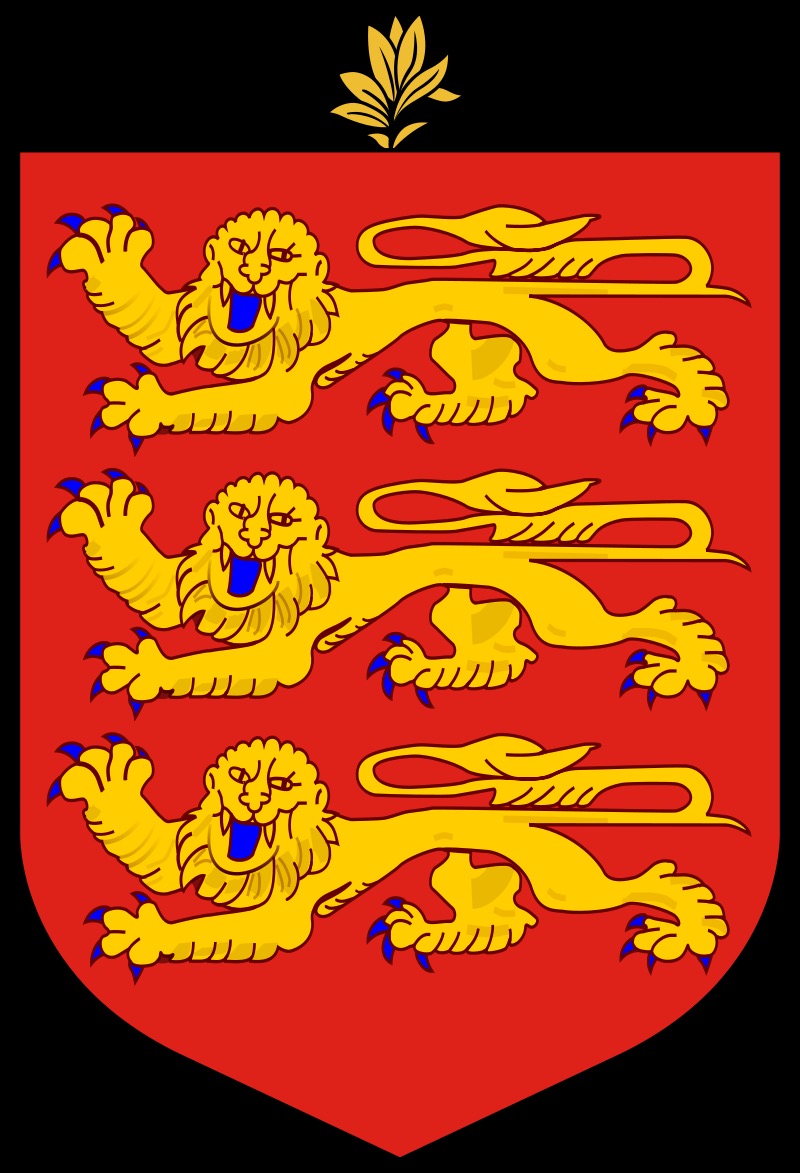
Official seal of Guernsey
